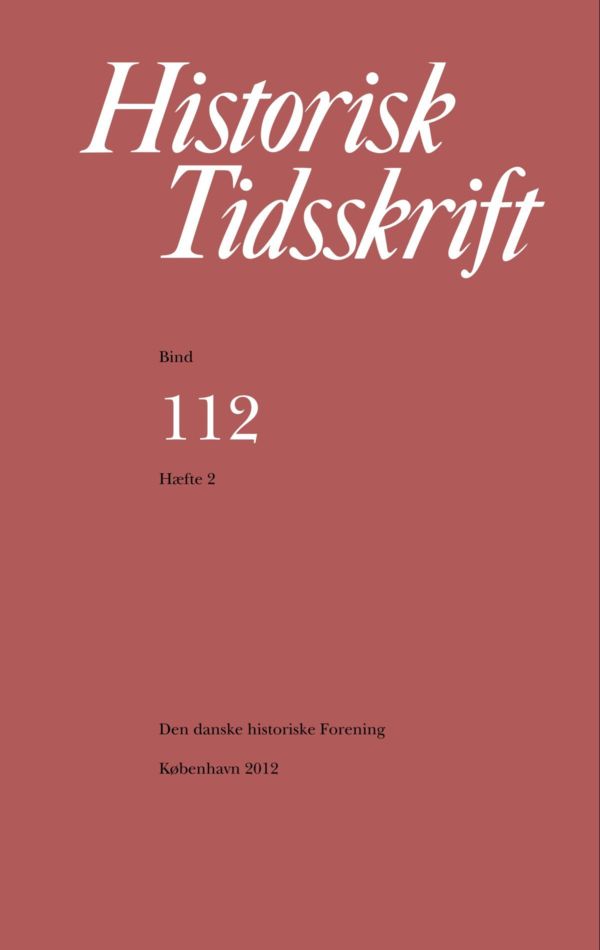Universitetets køn. Kønsnormer og kvinders karrieremuligheder ved Københavns Universitets Filosofiske Fakultet, 1875-1925
DOI:
https://doi.org/10.7146/ht.v112i2.56634Resumé
The Gendered University Gender Attitudes and Career Opportunities for Women at the University of Copenhagen, Faculty of Humanities, 1875-1925In 1875, female students were granted the right to matriculate at the University of Copenhagen. Until then, it had been throughout a masculine institution, not only because its academic staff and student body were composed of men alone, but also by virtue of a scholarly culture and set of ideals that held manliness in esteem. The present article examines the gendered university, and the transformations it underwent, by analysing three debates. The first is a discussion among all the University’s Fa culty members at a meeting in 1904 about whether women might be employable as professors. The second started in 1877, shortly after the first women students had been admitted. The quarrel was about female participation in the Students’ Association. The third and final case is a more long-run exchange of views – some of which were only stated implicitly – on the relation between gender and scholarly performance. The source material for this part is various interventions by tenured professors of the Faculty of Humanities, published in scholarly as well as more popular contexts over the period 1875-1925. The debates indicate that the University quite easily – especially compared to other institutions – accepted the formalities of women having equal rights with men in academia. This was due to the ruling meritocratic ideals that made it next to impossible for even the most stubborn sceptic to reject on principle the possibility of women acquiring positions as university teachers. It was far more difficult for women to gain real, actual, unconditional acceptance as fellow students and scholars. Student life was conceived of as a masculine realm of freedom inserted between the restrictions of childhood and the responsibilities of the established family life of an adult. This phase of autonomous development, including, perchance, some sowing of wild oats, was one of masculine camaraderie, not easily reconciled with the virtuous behaviour required when in female company. This view of the relation between the sexes in public life was not in the long run a sufficient argument for excluding women from the Student’s Association, and in 1898 they acquired the right to membership. On the scholarly side, however, a masculine gender bias persisted. A clear majority of the professors of the humanities believed that men alone were able to satisfy the demands of an academic research institution when it came to creativity and logic in the production of new knowledge and in criticism. Only to a very limited extent did they meet opposition from female scholars. At the end of the article, focus shifts towards the actual experience of women at the University, including their possibility of being accepted and become a success, and their strategies for coping with the masculine environment. The conclusion in this section is that women did meet many obstacles due to their sex, but also that these difficulties were not prohibitive for embarking successfully on a research career. After all, talent was more important than gender.Downloads
Publiceret
Citation/Eksport
Nummer
Sektion
Licens
Ophavsret til bidrag i Historisk Tidsskrift tilhører forfatterne og Den danske historiske Forening som udgiver af Historisk Tidsskrift. For illustrationer gælder den ophavsret, som står anført i billedteksten. Ophavsretslovens almindelige bestemmelser gælder, hvilket vil sige, at ophavsretten gælder i 70 år efter forfatterens død. Bidrag i Historisk Tidsskrift må derfor, med forbehold for en ”moving wall” på tre år, frit downloades, læses, gemmes, anvendes og citeres (med kildeangivelse) i privat og videnskabelig sammenhæng, men de må ikke helt eller delvis genudgives af tredjepart, heller ikke i redigeret form, uden tilladelse fra forfatterne og Den danske historiske Forening. Henvendelse skal i så fald rettes til Historisk Tidsskrifts redaktion på histtid@hum.ku.dk.





